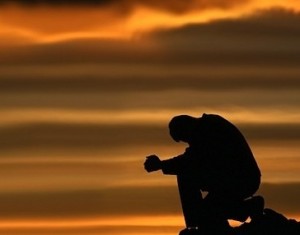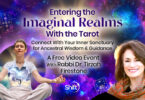By Adam Lanka
Prayer means many different things to many different people. It is something that is so pervasive in our lives that it permeates fully through our societies and cultures. All cultures and religious traditions have their own practices when it comes to prayer, but let us acknowledge the similar theme. People all over the world right now are praying, to influence their world and the universe in myriad ways. But what factors determine the effectiveness of prayer, what is the fundamental basis of its function? How does it work to influence our daily lives and shape our world?
Prayer is our divine and innate connection with the fabric of reality, the way that we write our free will upon the world. To completely examine the nature of prayer we must look at it through various lenses and perspectives, involving spirituality and science, to find the common factors that describe this ancient tradition.
[pro_ad_display_adzone id=”110028″]
To better understand the mechanics of prayer, let us view it through the Quantum lens. A crucial part of Quantum physics, Warner Heisenberg’s Uncertainty Principle dictates that we can only measure where a particle is, or how fast it is moving. The act of measuring one of these quantities actually increases uncertainty in the other. What this means is that energy exists as a wave when unobserved, and as a particle when we measure observe it in a location. Observation is the action that separates a particle into either state. But what is the particle when it is not being observed?
Waves in Quantum are actually waves of probability, where everything exists as a formless potentia throughout which any possible outcome can arise. Consciousness interacts with the infinite potentia to create and collapse the world around us into what we call our reality. But our true reality lies within the infinite, as parts of the all connected unitive consciousness of energy. Every particle and atom in the universe is born from the same infinite miasma, and as such, absolutely everything in the universe is one.
The focus of prayer does not need to be directed outward to an external source, it needs to be directed inwards, into our own personal connection with the source. By actively focusing our consciousness, we collapse the wave function of energies, and we consciously create the universe around us. We have stumbled through Quantum theory to finally come to the conclusion that its fundamental function works exactly as prayer does. But with this new foundation in mind, let us examine prayer in its current state.
But to focus our energy is more than just naming the new reality or possibility, it requires complementing it with thought, feeling, and belief. To influence the fabric of existence, we must consciously create with our intent. Prayers are more than just reciting words and chants, it is to be done with feeling, with purpose, and with intent. The combination and arrangement of words isn’t what makes prayer powerful, but what comes from our hearts. By feeling and making a vibration, we send that wave out to influence the infinite probabilities and possibilities in the universe.
Intent and strong feeling are the ways that we create our vibration, and manage the frequency of our wave. Every feeling, mindset, emotion, and thought has a corresponding coherent wave pattern that propagates outward into the fabric of the universe. As it moves through the infinite potential energy, it creates further waves and ripples, and influences all of the energy it comes into contact with. When praying, our intent and pure emotion are the catalysts that actually shape the universe around us, that collapse all of the waves into existence, into reality. We create and shape the world around us with simple, natural, human feelings.
But the caveat from Heisenberg again is that we can influence the wave with our energy, but when we observe it collapses. In prayer, if we are so tied up and entangled with our intent, trying to observe our reality and call it into existence at the same time, we make the energy collapse. Intent fails if we are attached to the outcome of our prayers, for the energy cannot occupy both states; we can know it as wave/vibration or as particle/location due to uncertainty. The most important part of effective prayer and manifesting is to be free of attachment to the outcomes, so that your vibration and intent are not interfered with by observation.
The ego mind plays the biggest role in attaching to the outcomes, as it is focused upon controlling the ‘how’ of the universe, or the particular way and pattern the energy expresses itself. But we cannot bend the universe to our will; we can work with it to influence and shape the expression of its energy. Instead of wishing, hoping for something to come to pass, we must instead be and feel the vibration that we wish to experience, that we wish to send out and influence the rest of the universe. One must feel, completely and wholly, that an intent or outcome already exists in the universe, is already happening. By surrounding ourselves with our new reality, our present reality grows to encompass the new vibration.
With this new glimpse at the mechanics of prayer, we see people all around the world, whether knowingly or unknowingly, constantly shape their daily existence. The universe is made of energy, and to better understand and interact with it, we need to only speak in its language; emotion. Prayer molds the medium, and paints the picture of the world around us. We simply need to be the vibration, be the wave, and be the change in the world that we want to see. We aren’t waiting for the world to change, it is already happening, right now, in each moment. As we all consciously focus our awareness, intent, and emotion to call forth the vibrations and the energy we wish to experience in our universe.
About the Author
Adam Lanka, originally from North Carolina, is a traveling philosopher, energetic arts healer, and lightworker. His passion and interest in the spiritual path has led him to many insightful revelations about religion, spirituality, and how to walk nobly in these modern times. To learn more about Adam, please visit his personal blog, The Wanderlust.
[pro_ad_display_adzone id=”110027″]







